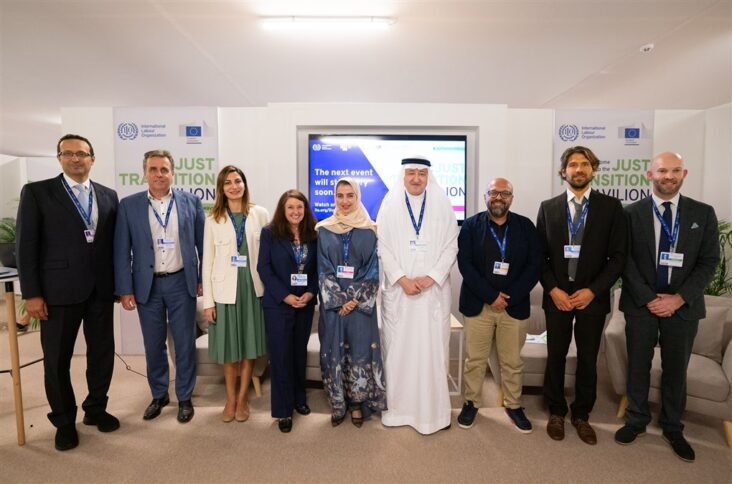UAE Embraces Integrated Policies To Enhance Job Opportunities, Economic Prosperity In Labour Market In Light Of Climate Change

The UAE embraces a set of integrated policies to enhance and diversify job opportunities, boost employment rates, and drive economic prosperity in the country as part of its tireless efforts to combat climate change.
This statement was made during a special session by the International Labour Organisation (ILO), held on the sidelines of the 28th Conference of the Parties to the United Nations Framework Convention on Climate Change (COP28), which the UAE is hosting.
The ILO and the Islamic Development Bank released a report titled “The social and employment impacts of decarbonization and green industrial growth scenarios for the Middle East and North Africa region,” during the session, which brought together Her Excellency Shayma Al Awadhi, Assistant Undersecretary for Communication and International Relations at the Ministry of Human Resources and Emiratisation (MoHRE); His Excellency Gert Jan Koopman, Director-General of the European Union’s Directorate-General for Neighbourhood and Enlargement Negotiations; El Sayed Torky, Senior Advisor at the Federation of Egyptian Industries; and Mohamed Al Maita from the Arab Trade Union Confederation, with various international organisations present, along with individuals interested in the fields of labour and climate change.
During the session, Al Awadhi presented the UAE’s pioneering experience and preparations to implement its ambitious vision for Net Zero by 2050 from a labour perspective, which includes creating promising job opportunities and driving a Just Transition for workers in the country amid climate change and its impact on global labour markets.
“The UAE is at the forefront among countries of the world in terms of adopting cutting-edge technology as an engine for advancing the circular economy and creating green jobs, especially for women,” she said.
“The UAE worked with the Organisation for Economic Cooperation and Development (OECD) in launching a guideline to support working women within different economic sectors who are mostly affected by variables on labour markets because of moving to green economies and adoption of advanced technology.
“The country has also adopted innovative social protection programmes, such as the Unemployment Insurance Scheme and the Voluntary End-of-Service Savings Scheme (Savings Scheme) to ensure well-being of workers amid climate change’s economic repercussions,” she added.
The report, introduced by the International Labour Organisation in collaboration with the Islamic Development Bank, is the first of its kind and aims to outline various decarbonisation policy scenarios, highlighting their impact on the labour market, and their social and economic effects in the MENA region. The study propose solutions to ensure a Just Transition for workers in the energy sector towards green jobs, underlining the region’s potential to take the lead in driving climate transition and enhancing community wellbeing.


